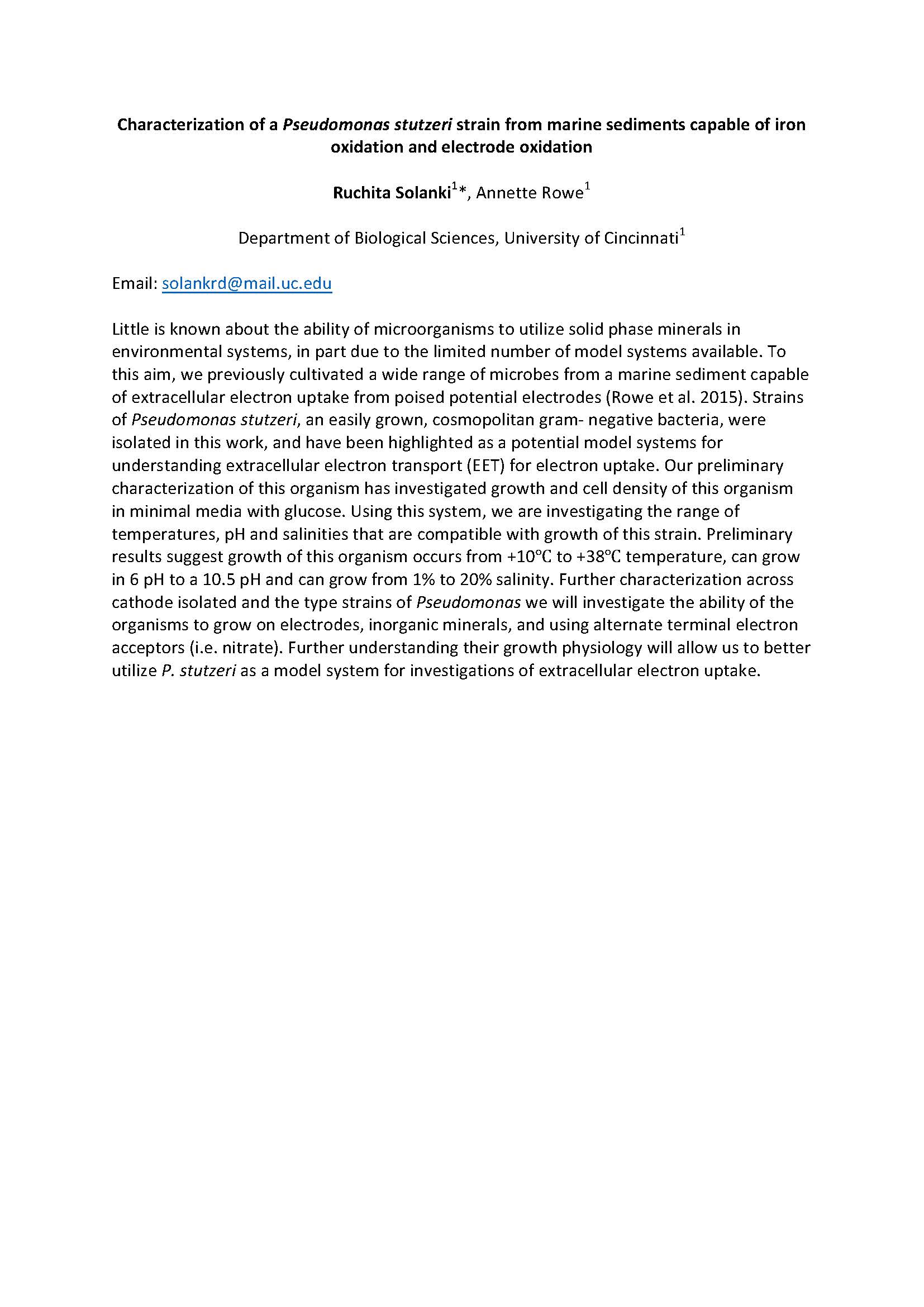Characterization of a Pseudomonas stutzeri strain from marine sediments capable of iron oxidation and electrode oxidatation
Main Article Content
Abstract
By Ruchita Solanki, Biological Sciences
Advisor: Annette Rowe
Presentation ID: PM_ATRIUM34
Abstract: Little is known about the ability of microorganisms to utilize solid phase minerals in environmental systems, in part due to the limited number of model systems available. To this aim, we previously cultivated a wide range of microbes from a marine sediment capable of extracellular electron uptake from poised potential electrodes (Rowe et al. 2015). Strains of Pseudomonas stutzeri, an easily grown, cosmopolitan gram- negative bacteria, were isolated in this work, and have been highlighted as a potential model systems for understanding extracellular electron transport (EET) for electron uptake. Our preliminary characterization of this organism have investigated growth and cell density of this organism in minimal media with glucose. Using this system, we are investigating the range of temperatures, pH and salinities that are compatible with growth of this strain. Preliminary results suggest growth of this organism occurs from +10 to +35 temperature, and can grow in 5 pH to a basic pH. Further characterization across cathode isolated and the type strains of Pseudomonas we will investigate the ability of the organisms to grow on electrodes, inorganic minerals, and using alternate terminal electron acceptors (i.e. nitrate). Further understanding their growth physiology will allow us to better utilize P. stutzeri as a model system for investigations of extracellular electron uptake.
